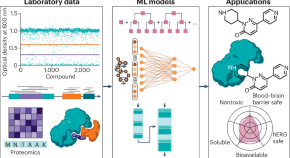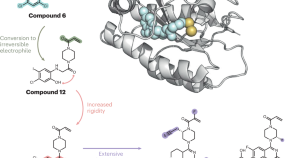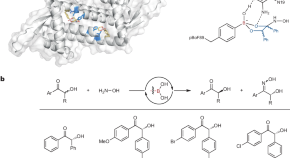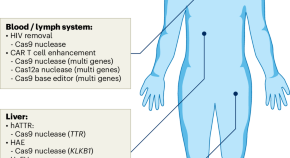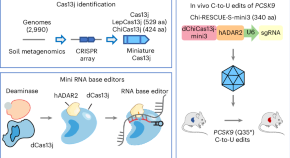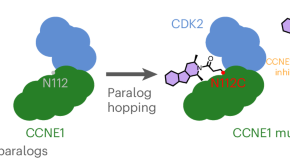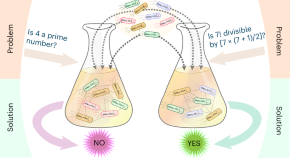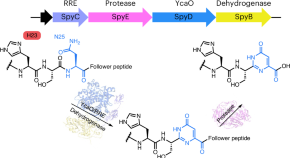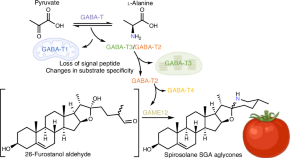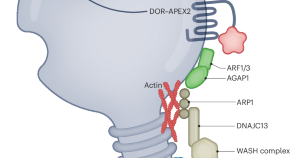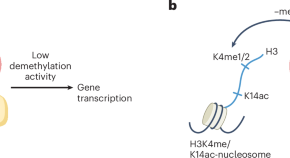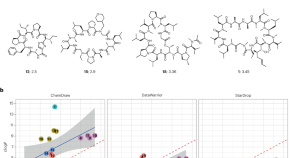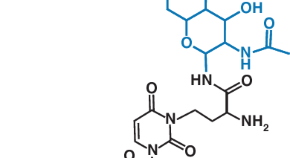Announcements
Advertisement
-
-

Where chemical biology meets physiology
Research in the early days of chemical biology was mostly limited to the application of chemical tools to model cell lines grown in incubators. Now, discoveries are being made in more physiologically relevant systems, from tissues to organisms, using precisely targeted molecules. The 2023 Chemical Biology & Physiology meeting (in Portland, Oregon) discussed the latest advances in the field, with research from around the globe demonstrating that the transition to making discoveries at the chemical biology–physiology interface is happening now.
-
-
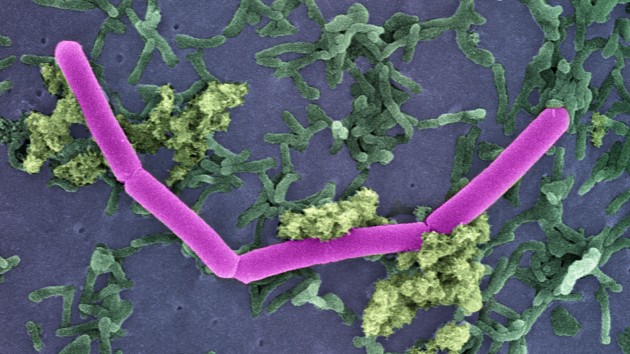
Chemical Biology of Microbiomes
Trending - Altmetric
-
Simultaneous multi-site editing of individual genomes using retron arrays
-
Biosynthesis of peptide–nucleobase hybrids in ribosomal peptides
-
Substrate interactions guide cyclase engineering and lasso peptide diversification
-
Multicellular artificial neural network-type architectures demonstrate computational problem solving


